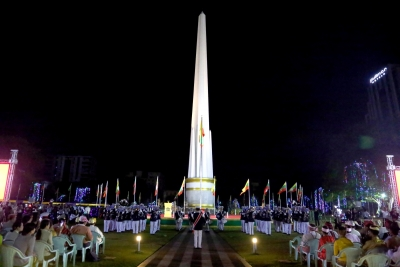Yangon: Myanmar has pardoned around 6,000 prisoners to celebrate the country’s 77th Independence Day, as announced by the State Administration Council on January 4. This includes 5,864 prisoners from Myanmar and 180 from other countries, along with some sentence reductions for certain inmates.
In comparison, over 9,000 prisoners received amnesty during last year’s 76th Independence Day celebrations.
Independence Day marks the end of 60 years of colonial rule, with Burma (now Myanmar) declaring its independence from Britain on January 4, 1948. The journey to independence involved Burmese soldiers collaborating with the British to fend off Japanese forces during World War II. Nationalist leader Aung San played a crucial role in this struggle, establishing a political and military base to negotiate with Britain after the war. He became part of the provisional government formed in 1946.
Aung San’s leadership faced challenges from various ethnic conflicts, but he managed to unify the nationalist movement. In January 1947, he signed the Panglong Agreement with ethnic leaders, which affirmed Burma’s independence as a unified nation.
The country officially became the Union of Burma in 1948, with Sao Shwe Thaik as its first president and U Nu as its first prime minister. However, Aung San and several Cabinet members were assassinated in July 1947, a tragedy that resonated deeply across the nation. Despite this, the path to political autonomy continued, culminating in independence on January 4, 1948.
On that day, many celebrated along Rangoon’s waterfront, reflecting on the end of British rule, which had begun with the Anglo-Burmese War of 1824-26 and saw Burma become a separate colony in 1937 after being part of British India.
